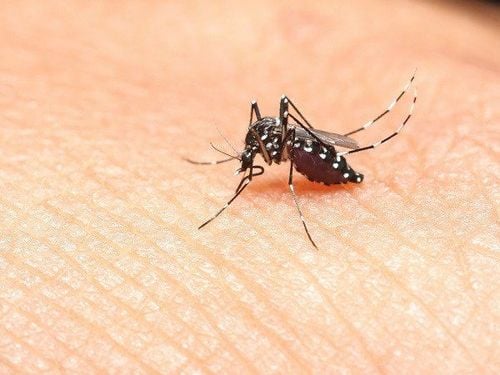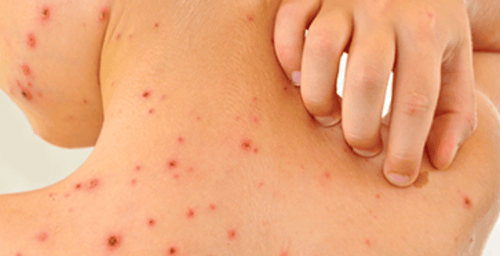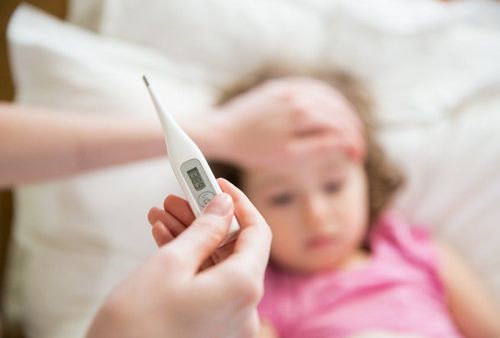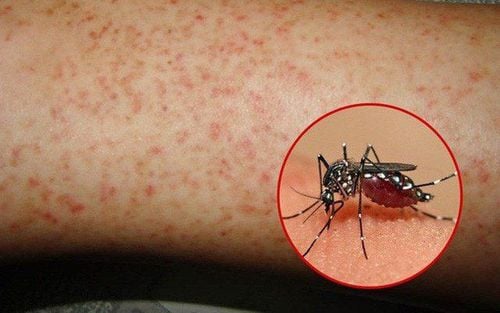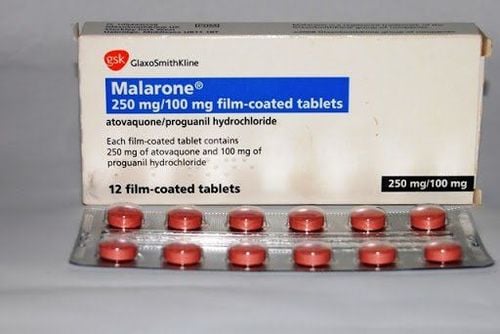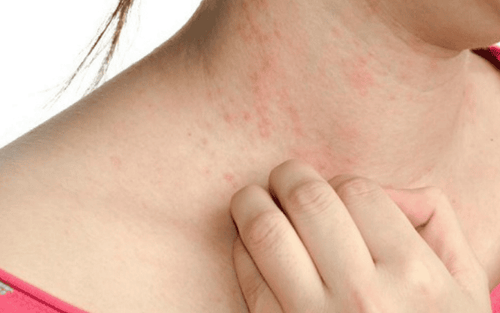This is an automatically translated article.
This article was professionally consulted with Master, Doctor Nguyen Thi Nhat - Infectious Disease Specialist - Department of Medical Examination & Internal Medicine - Vinmec Hai Phong International General Hospital.Dengue virus cannot be transmitted directly from person to person. It is transmitted to humans primarily through the bite of the female mosquito Aedes aegypti. Mosquitoes causing dengue fever bite people most strongly in the early morning and evening.
1. Aedes mosquito causes disease
The mosquito that causes dengue fever consists of two species of the genus Aedes, Aedes aegypti and Aedes albopictus. Among them, Aedes aegypti is the main vector.The Aedes aegypti mosquito, also known as the white striped mosquito, lives in homes, near areas with many people. Mosquitoes usually live in low light, dark places in the house. Some of their favorite places to hang out are under furniture, hanging clothes, curtains in bedrooms, bathrooms, bathrooms and kitchens, cupboards, niches, under the bed, behind curtains. They rarely perch on the wall. In those places they are protected from wind, rain and most other carnivores, helping them to live longer. Therefore, the likelihood that they will live long enough to catch the virus from a certain sick person and incubate, transmit the disease to others also increases.
Dengue-causing mosquitoes lay their eggs in water containers in the home and in areas around the house with standing water such as (bottles, empty bins, garbage, damaged tires,...). Eggs hatch on contact with water. Mosquito eggs can withstand very dry conditions and live for many months. During her life cycle, female mosquitoes lay up to 5 times, each time dozens of eggs.
2. At what time is the Aedes mosquito active?

The Aedes aegypti mosquito is a diurnal blood-sucking species. Its peak burning time is in the early morning at sunrise and evening before sunset, especially around 1 hour before sunset. However, they are still active sucking blood throughout the day, even at night (but to a very low extent).
Therefore, to prevent being bitten by mosquitoes, people should not stay in dark places with dense trees during this time, nor should children play here. In some mandatory cases, for example due to work, people in humid and low-light places during this period need to wear long-sleeved shirts, use creams,... to limit the risk of getting sick. mosquito bite.
3. Mosquitoes cause dengue fever like?
Dengue virus cannot be transmitted directly from person to person. However, the patient after being infected with the virus and having a fever can be a source of the virus to other mosquitoes. An infected person is someone who carries the disease from one country to another or from one region to another while the virus is circulating and multiplying in their blood.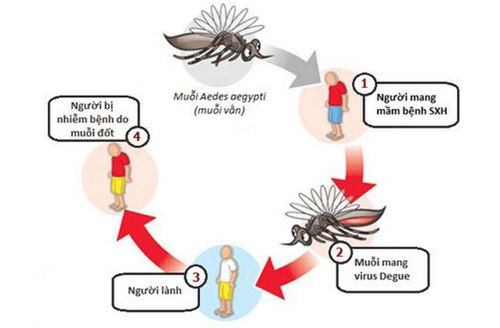
On the other hand, Aedes mosquitoes can also transmit the virus directly from one person to another by changing the host when the blood meal is interrupted. It is the repeated blood sucking of mosquitoes that can explain the natural explosiveness of outbreaks with low numbers of female mosquitoes found in outbreaks.
The ability to transmit the virus to a healthy person is done when the mosquito sucks the patient's blood during the period of viremia. Viral infection can be 6 to 18 hours before the onset of symptoms. Thus, the patient is the source of infection right before the fever period and until the fever is gone, an average of 6-7 days.
Therefore, for patients with dengue fever, as soon as the disease is detected, they should stay under a mosquito net or mosquito net, to avoid becoming a source of infection for people around.
Currently, because there is no preventive vaccine and no specific treatment, we rely on transmission routes to proactively prevent dengue fever. In particular, those who have not yet contracted the disease but live in epidemic areas must actively prevent dengue fever from spreading into a large outbreak. When there are signs of suspicion of dengue fever, they must actively go to medical facilities or Vinmec International General Hospital for examination and treatment. There is a team of well-trained and experienced infectious doctors, a system of complete and modern medical equipment and professional service quality for high efficiency in diagnosis and treatment. The hospital receives examination, diagnosis, treatment, cooperation against epidemics and takes care of patients with diseases caused by bacteria, parasites, infections with unknown causes. In particular, the Department of Infectious Diseases - Vinmec International General Hospital also includes the function of organizing vaccinations under the direction of the Ministry of Health, both for children and adults, in which special care is taken. Services for adults, typically vaccination against HPV virus, hepatitis A, hepatitis B, shingles, Herpes, malaria, pneumonia,...
Please dial HOTLINE for more information or register for an appointment HERE. Download MyVinmec app to make appointments faster and to manage your bookings easily.





